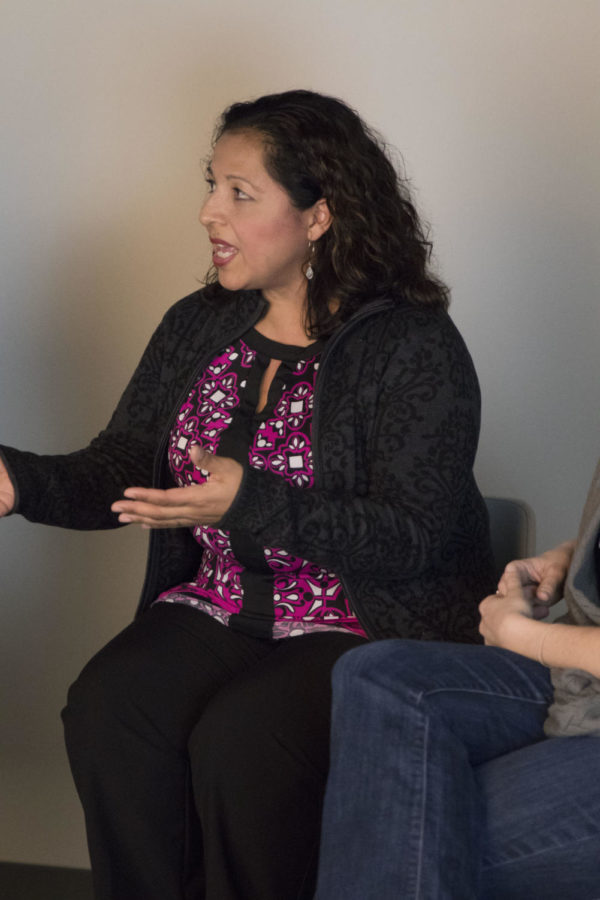Know Your Rights: DACA Discussion Panel
Liz Mendez-Shannon talks about diversity and inclusion for the Hispanic and Latinx community at the Daily Lounge March 30.
March 6, 2018
With the confusion surrounding DACA, some students may be left feeling lost about their situation and what their options are.
Liz Mendez-Shannon, project director in Latinx and Hispanic affairs, has organized a panel for DACA recipients to discuss their rights and the actions they can take.
The panel discussion will be taking place on Tuesday, March 6, from 2:00 pm to 3:30 pm.
Deferred Action for Childhood Arrivals, or DACA, is a law enacted in 2012 which allows undocumented individuals who originally immigrated to the United States as children to receive a two year period in which they can work and go to school without deportation, which can be renewed for $465.
Mendez-Shannon said she was holding this panel discussion as a way for Iowa State’s population to ask questions about DACA in a safe environment. She also feels it is important to create a sense of community among those affected by the uncertain status of DACA at Iowa State.
“All these challenges are not new for the community,” Mendez-Shannon said. “We’ve been having this fight a long time, so it’s one of those incidents where we have to continue to work as a community and to support each other.”
Mendez hopes this panel can open up the opportunity to empower those affected by the current climate surrounding immigration in the United States.
“Just because someone’s identity is being assaulted because they’re an immigrant, it doesn’t mean that they have to succumb to it,” Mendez-Shannon said. “There are resources to help them to build their community. There are resources to change that situation.”
Mendez-Shannon also believes knowing one’s rights is also a very important outcome of this panel.
“When folks open the door to understanding how things function, what are, [and] where are areas they can go to, they feel empowered,” Mendez-Shannon said. “They feel like they have a choice in their future.”
One of the panel members and member of the Office of Latino Affairs in the Iowa Department of Human Rights, Sonia Reyes-Snyder, works as a provider of educational information for groups working with Latinx people in the state of Iowa.
Reyes-Snyder will be informing students of the rights and resources available to them in Iowa as DACA students.
“What we are recommending DACA students and TPS recipients is for them to go meet with an attorney, which can be costly,” Reyes-Snyder said. “I will be bringing a list of nonprofit organizations that have immigration attorneys that are either free of charge or they have a sliding fee.”
Reyes-Snyder will also be featuring mental health outreach resources in the discussion.
“We have a lot of mental health issues that are arising from the fear and from the uncertainty that students are going through right now,” Reyes said.
Reyes-Snyder also wants to raise awareness of the struggles of DACA recipients and Latinx students in the Iowa State population.
“It’s important for [students] to know that their classmates are going through a really hard time right now, if not for themselves specifically, for their family members,” Reyes-Snyder said. “There’s a lot of fear.”
Reyes-Snyder asked for Iowa State students to offer support and compassion to their classmates during this uncertain and stressful time.
















